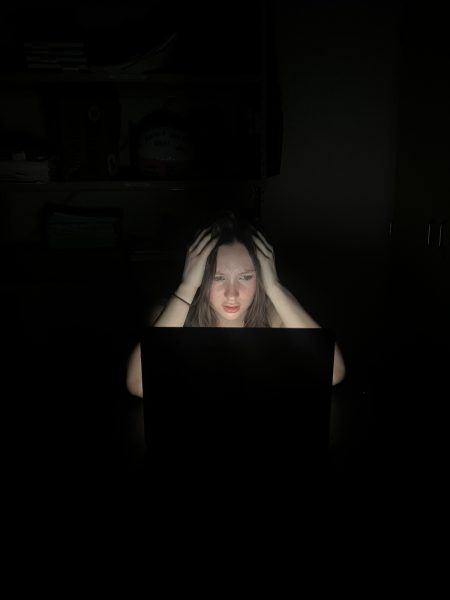Mental health matters: Mental health days should count as excused absences
It is no secret that the pandemic has taken a toll on everyone’s mental health. Humans are social creatures, and while staying home and social distancing is the safest option, it does not always fare well for people’s minds. According to the National Institute of Mental Health (NIMH), one in five adults in the United States (U.S.) live with a mental illness. As for children ages six through 17, the National Alliance on Mental Illness (NAMI) writes that 17 percent experience a mental health disorder. Not only are students across the country living with mental health disorders, they are also facing high levels of stress in school. In 2015, a study by New York University (NYU) found that almost half (49 percent) of the 128 students surveyed said they felt great deals of stress everyday. When coupling these statistics with the pandemic, it is not surprising that students everywhere are needing some time to rest. To combat this mental health crisis, Arlington Public Schools (APS) should implement a policy which counts mental health days as excused absences.
Laws supporting these measures have been passed in both Oregon and Utah. According to The New York Times, in 2018, Utah added to its list of students’ “valid excuses” that “an illness, which may be either mental or physical,” would be accepted. The same New York Times article wrote that Oregon passed a law in July of 2019 which stated that a student could be excused from school if “the absence is caused by the mental or behavioral health of the pupil.” Oregon’s law also requires students to not have more than five excused absences from school within a three-month period, and no more than ten excused absences within a six-month period. This is an appropriate amount of time for excused absences, considering states want to ensure that students will not abuse the policies.
At the end of 2020, a bill was passed by the Virginia General Assembly requiring the Department of Education to “establish . . . guidelines for the granting of excused absences to students who are absent from school due to mental or behavioral health and requires any student who is absent from school due to his mental or behavioral health to be granted an excused absence, subject to such guidelines.” The plan was to give these guidelines to school boards before December 31, 2020. However, with COVID-19 as the priority, it does not appear that any guidelines were provided, so the APS handbook currently does not include anything regarding excused absences for mental health reasons. This should be remedied next school year to include mental health in the list of excused absences.
One of the important reasons for why students should be able to take a mental health day is that they will not be able to perform their best in school if they are too stressed. They will have little motivation, and may have trouble concentrating on assignments or assessments. Extreme levels of stress can also lead to students dropping classes or discontinuing school altogether. In fact, in 2010, The American College Health Association National College Health Assessment discovered that stress caused more than 25 percent of students to have lower grades or difficulty in completing a course.
While some people argue against mental health days because they don’t think mental illnesses are as serious as physical illnesses, this is certainly not the case. The CDC writes that having a mental illness can increase one’s risk for physical health issues such as diabetes and heart disease, and while stress is not considered a mental illness, mass amounts of it can make someone vulnerable to developing a mental illness. Taking a mental health day should be viewed in the same light as a student taking the day off from school when they are sick — students should have the opportunity to rest and return to class once they feel better.
Ultimately, the stigma surrounding mental health has been fading, and by implementing this policy of counting mental health days as excused absences within APS, we can help to end said stigma and lead more schools across the state and country to do the same.













